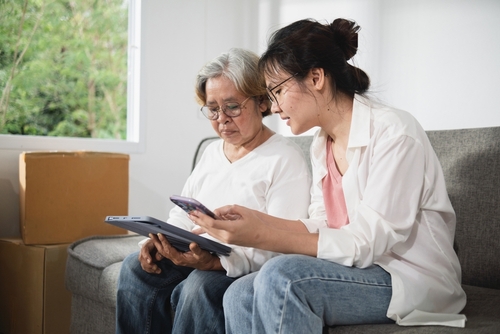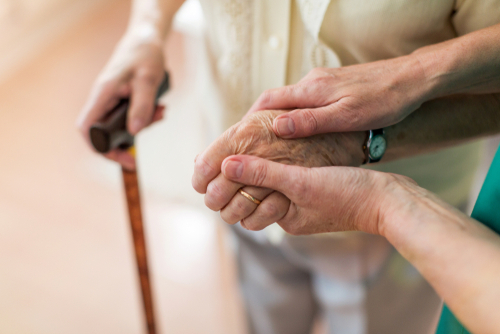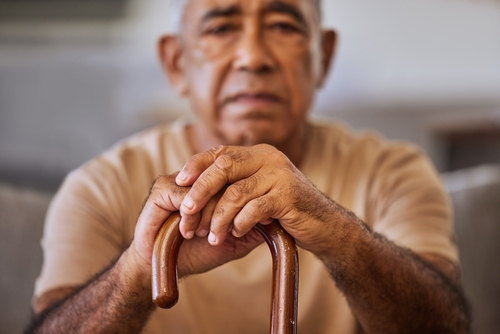
Signs That Your Aging Parent Needs Home Care Assistance
August 22, 2023
Respite Care for Seniors with Chronic Illnesses
October 5, 2023Strategies for Introducing Home Care to Reluctant Seniors

Strategies for Introducing Home Care to Reluctant Seniors
Strategies for Introducing Home Care to Reluctant Seniors. Introducing home care services to a senior loved one can be met with resistance.
Often rooted in complex emotions and fears, understanding and navigating these objections is crucial.
Here, we delve deeper into the reasons for such resistance and offer compassionate and effective communication strategies.
Read on – Strategies for Introducing Home Care to Reluctant Seniors:
Table of Contents
Understanding the Root Causes of Resistance
Fear of losing independence
For many seniors, needing assistance is synonymous with losing their independence. The thought of relying on someone, even for the most mundane tasks, can be overwhelming. Their home, which has been their domain, might suddenly feel like it’s under siege by outsiders.
Denial of declining health or capabilities
No one likes to admit they’re slowing down, least of all those who have lived a long, independent life. Some seniors might downplay their struggles, fearing they’ll be perceived as incapable or even burdensome.
Concerns about privacy and personal space
The home is a sanctuary. Bringing in outside help can feel intrusive. Seniors might have apprehensions about sharing personal spaces with strangers and the potential privacy breaches that might entail.
Creating a Safe Space for Discussion

Picking an appropriate time and place
A comfortable setting, free from interruptions, is key. The familiar surroundings of home, perhaps over a cup of tea, can create a conducive environment for such discussions.
Involving key family members or friends
Including trusted individuals can provide a sense of security. They can vouch for the necessity of care and act as mediators if the conversation becomes challenging.
Avoiding a confrontational approach
Phrasing matters. “We’ve noticed…” or “We’re concerned about…” can be less accusatory than “You need…”.
Highlighting the Positives of Home Care
| Benefit | Description |
|---|---|
| Personalized Care | Tailored activities and schedules suited to individual preferences |
| Companionship | Regular social interaction and companionship to combat loneliness |
| Activity Engagement | Assistance with hobbies, exercises, and other forms of recreation |
Enhanced quality of life
Home care can greatly enrich the senior’s life. Activities can be tailored to their preferences, ensuring each day is both comfortable and stimulating.
Safety and medical oversight
Regular health check-ups and prompt medical intervention can prevent minor ailments from escalating. This oversight provides a safety net that living alone cannot.
Potential for increased independence
Ironically, home care can amplify independence. By assisting in challenging tasks, seniors might find they can do more, with less risk.
Addressing Concerns Directly

Offering trial periods
A limited-time trial can ease seniors into the routine of home care. This hands-on experience might dispel many of their apprehensions.
Presenting testimonials or case studies
Stories of seniors who have benefited from home care can serve as powerful testimonials. They show real-life examples of improved quality of life, reduced hospital visits, and enhanced overall well-being.
Discussing privacy boundaries and professional ethics
Reiterating the professionalism of caregivers and the strict codes of conduct they adhere to can address and alleviate privacy concerns.
Exploring Alternative Solutions
Part-time or temporary assistance
If the idea of full-time care is daunting, propose starting with just a few hours a week. This gradual approach can serve as a gentle introduction.
Integrating technology
There are numerous senior-friendly technologies available today. From medication reminders to fall detection systems, these can act as intermediate steps before full-time human assistance is introduced.
| Tech Solution | Function |
|---|---|
| Medication Reminders | Alerts for timely medication intake |
| Fall Detection | Devices to alert family or medical professionals |
| Virtual Companions | Chatbots or apps for interaction and companionship |
Community or group programs
Day programs or senior centers offer care and companionship in a group setting. This might be a more palatable first step for those wary of individual caregivers.
Seeking Professional Guidance

Counseling or therapy for seniors
Professional counselors can help seniors articulate and process their fears, providing clarity for both them and their families.
Support groups for family members
These groups can be invaluable, offering families a platform to share their experiences, challenges, and solutions.
Consultations with geriatric care managers
These experts can provide insights on the types of care available, helping families make informed choices.
Common Misconceptions about Home Care
“It’s only for the very sick.”
One prevalent misconception is that home care is exclusively for those with severe ailments. In truth, home care can be tailored for various needs, from basic companionship and household chores to more intensive medical care.
“Home care robs seniors of their dignity.”
Contrary to this belief, personalized home care can bolster a senior’s dignity. Caregivers are trained to provide support discreetly, ensuring seniors can maintain their self-respect.
“Family should provide care, not strangers.”
While family support is invaluable, professional caregivers can offer specialized expertise that family members might lack. They’re trained to handle both medically and emotionally challenging situations, providing the best care possible.
Preparing the Home for Safe Care

Making necessary modifications
Homes might require modifications like grab bars, non-slip mats, or improved lighting for optimal safety. These minor changes can significantly reduce risks and enhance the comfort of seniors.
Establishing a clear communication channel
Families should have a direct line of communication with caregivers. Whether through daily logs, weekly updates, or regular meetings, this ensures everyone stays informed about the senior’s well-being.
Respecting personal spaces
While caregivers will access most areas of the home, designating private spaces for seniors ensures they can still maintain personal boundaries and enjoy moments of solitude.
Evaluating and Adapting the Care Plan
Regular check-ins
As seniors’ needs evolve, so should the care they receive. Monthly or quarterly evaluations can ensure the care remains relevant and beneficial.
Incorporating feedback
Encourage seniors to voice their feedback, be it positive or constructive. This feedback loop can fine-tune the care process.
Adapting to changing health conditions
The care plan should be updated if a senior faces a new health challenge. This proactive approach ensures seniors receive the right kind of support at every juncture.
Strategies for Introducing Home Care to Reluctant Seniors – Conclusion

While challenging, the transition to home care can be made smoother with understanding, patience, and the right strategies.
As we navigate our senior loved ones’ resistance, it’s crucial to remember the core objective: their happiness, comfort, and well-being.
We can introduce home care as a positive, life-enhancing choice by dispelling misconceptions, preparing their homes, and being adaptive to their needs.
Are you seeking professional and reliable elderly home care services in Singapore? Contact us today!



